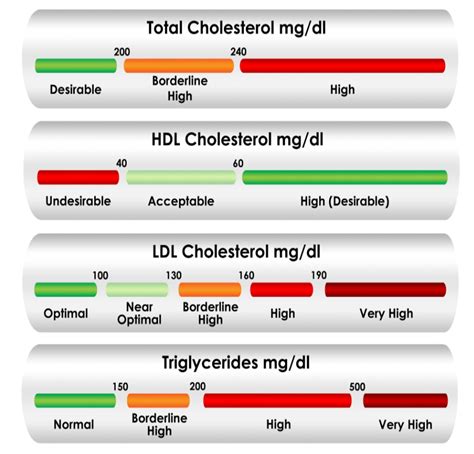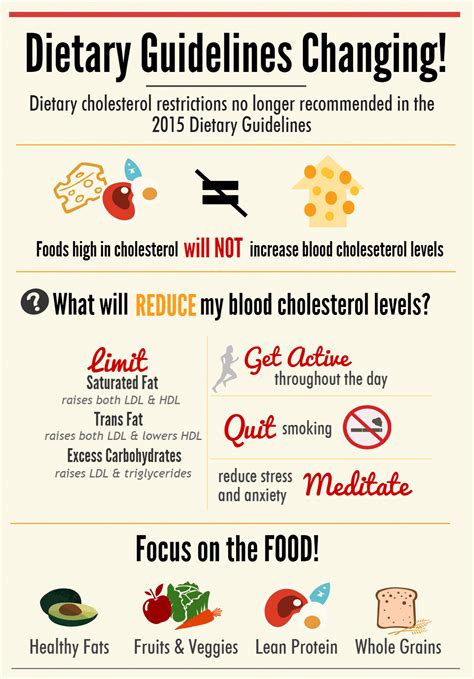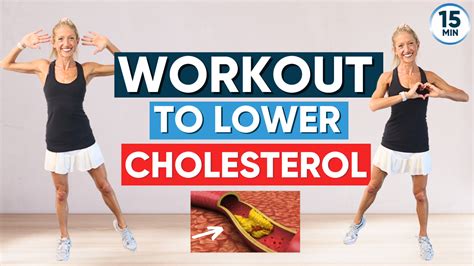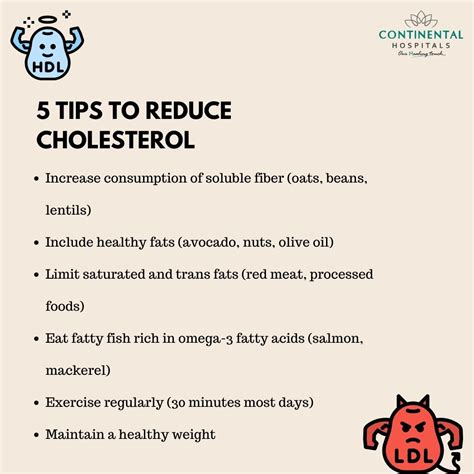Intro
Discover 5 ways high cholesterol affects health, including heart disease, stroke risks, and dietary changes to lower LDL and triglycerides, improving overall cardiovascular wellness.
High cholesterol is a common health issue that affects millions of people worldwide. It is a major risk factor for heart disease, stroke, and other cardiovascular conditions. Having high cholesterol means that there is too much cholesterol in the blood, which can lead to the buildup of plaque in the arteries, increasing the risk of heart attacks and strokes. In this article, we will explore the importance of managing high cholesterol and discuss five ways to help reduce cholesterol levels.
High cholesterol can be caused by a combination of genetic and lifestyle factors. A diet high in saturated and trans fats, lack of physical activity, and smoking can all contribute to high cholesterol. Additionally, certain medical conditions, such as diabetes and high blood pressure, can also increase the risk of developing high cholesterol. It is essential to understand the risks associated with high cholesterol and take steps to manage it.
The good news is that high cholesterol can be managed and reduced through a combination of lifestyle changes and medical treatment. By making a few simple changes to your diet and lifestyle, you can help lower your cholesterol levels and reduce your risk of heart disease. In the following sections, we will discuss five ways to help reduce cholesterol levels and improve overall heart health.
Understanding Cholesterol

Importance of Managing High Cholesterol
Managing high cholesterol is crucial for maintaining good heart health. When left untreated, high cholesterol can lead to the development of plaque in the arteries, which can cause them to narrow and harden. This can increase the risk of heart attacks, strokes, and other cardiovascular conditions. Additionally, high cholesterol can also increase the risk of peripheral artery disease, which can cause pain and numbness in the legs.Dietary Changes to Reduce Cholesterol

Benefits of a Healthy Diet
A healthy diet can provide numerous benefits for reducing cholesterol levels. By incorporating more fruits, vegetables, and whole grains into your diet, you can help lower your LDL cholesterol levels and increase your HDL cholesterol levels. Additionally, a healthy diet can also help you maintain a healthy weight, which can further reduce your risk of heart disease.Regular Exercise to Reduce Cholesterol

Benefits of Regular Exercise
Regular exercise can provide numerous benefits for reducing cholesterol levels. By incorporating more physical activity into your daily routine, you can help lower your LDL cholesterol levels and increase your HDL cholesterol levels. Additionally, regular exercise can also help you maintain a healthy weight, which can further reduce your risk of heart disease.Stress Reduction Techniques to Reduce Cholesterol

Benefits of Stress Reduction Techniques
Stress reduction techniques can provide numerous benefits for reducing cholesterol levels. By practicing stress reduction techniques, such as meditation and yoga, you can help lower your cortisol levels and reduce your cholesterol levels. Additionally, stress reduction techniques can also help you maintain a healthy weight, which can further reduce your risk of heart disease.Getting Enough Sleep to Reduce Cholesterol

Benefits of Getting Enough Sleep
Getting enough sleep can provide numerous benefits for reducing cholesterol levels. By getting enough sleep, you can help lower your cortisol levels and reduce your cholesterol levels. Additionally, getting enough sleep can also help you maintain a healthy weight, which can further reduce your risk of heart disease.Quitting Smoking to Reduce Cholesterol

Benefits of Quitting Smoking
Quitting smoking can provide numerous benefits for reducing cholesterol levels. By quitting smoking, you can help lower your cholesterol levels and reduce your risk of heart disease. Additionally, quitting smoking can also help you maintain a healthy weight, which can further reduce your risk of heart disease.What are the symptoms of high cholesterol?
+High cholesterol often does not have any symptoms, but it can increase the risk of heart disease and stroke. If you have high cholesterol, you may experience symptoms such as chest pain, shortness of breath, and numbness or pain in the legs.
How can I lower my cholesterol levels?
+There are several ways to lower cholesterol levels, including dietary changes, regular exercise, stress reduction techniques, getting enough sleep, and quitting smoking. Additionally, your doctor may prescribe medication to help lower your cholesterol levels.
What are the risks of high cholesterol?
+High cholesterol can increase the risk of heart disease, stroke, and peripheral artery disease. If left untreated, high cholesterol can lead to serious health problems, including heart attacks, strokes, and even death.
In conclusion, managing high cholesterol is crucial for maintaining good heart health. By making a few simple changes to your diet and lifestyle, you can help lower your cholesterol levels and reduce your risk of heart disease. Remember to always consult with your doctor before making any significant changes to your diet or lifestyle. We hope this article has provided you with the information and inspiration you need to take control of your cholesterol levels and improve your overall health. If you have any questions or comments, please don't hesitate to share them with us.
